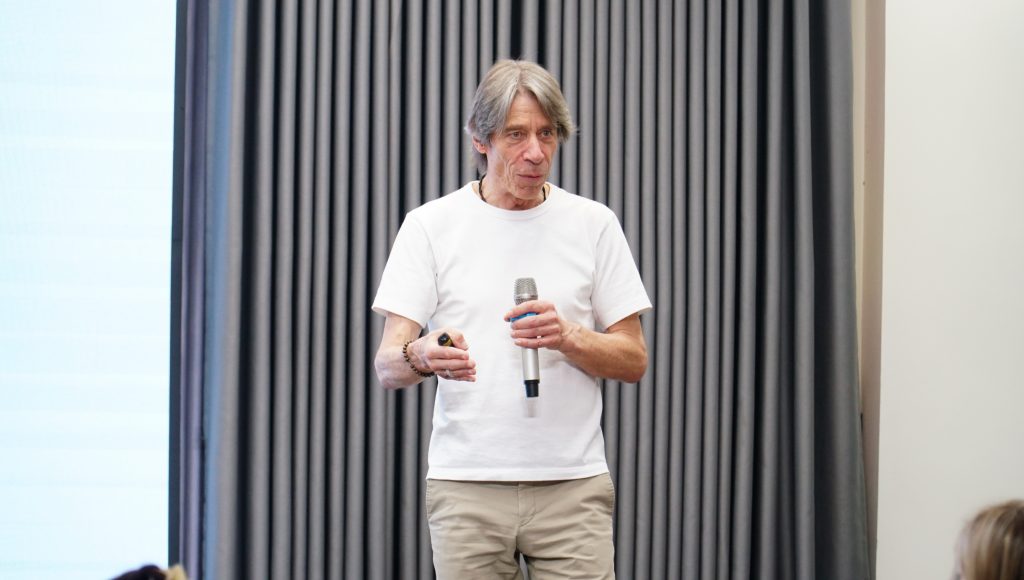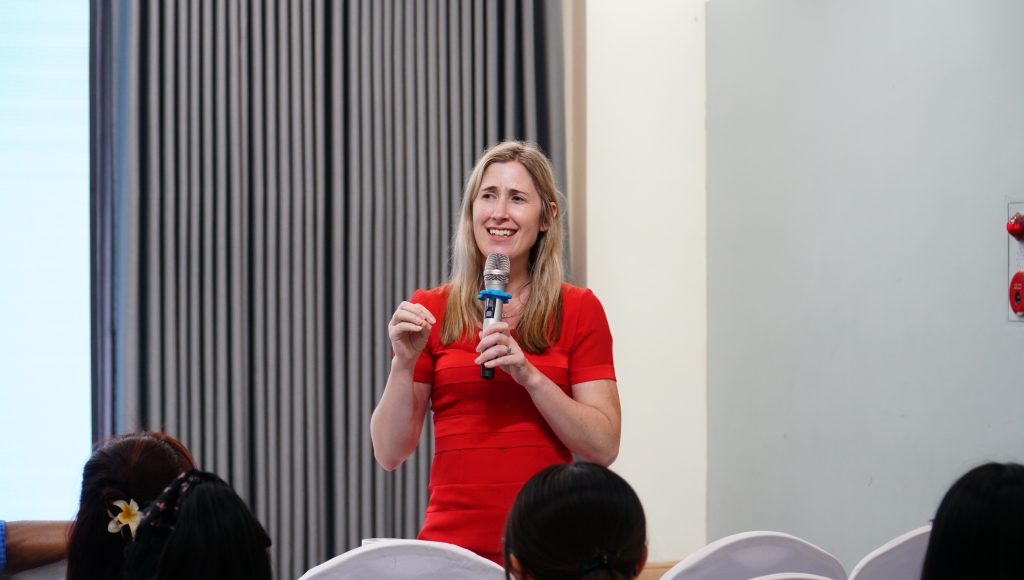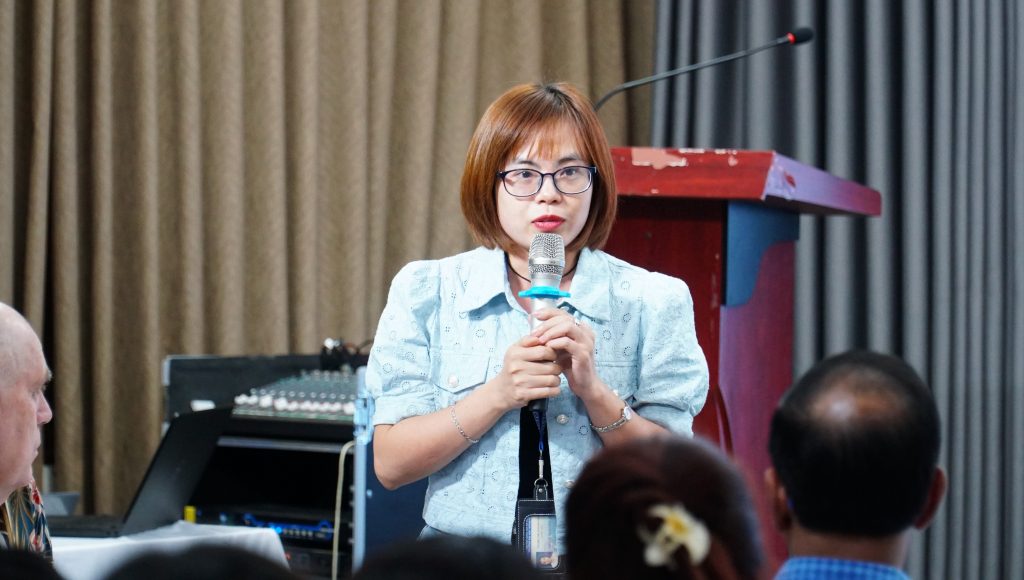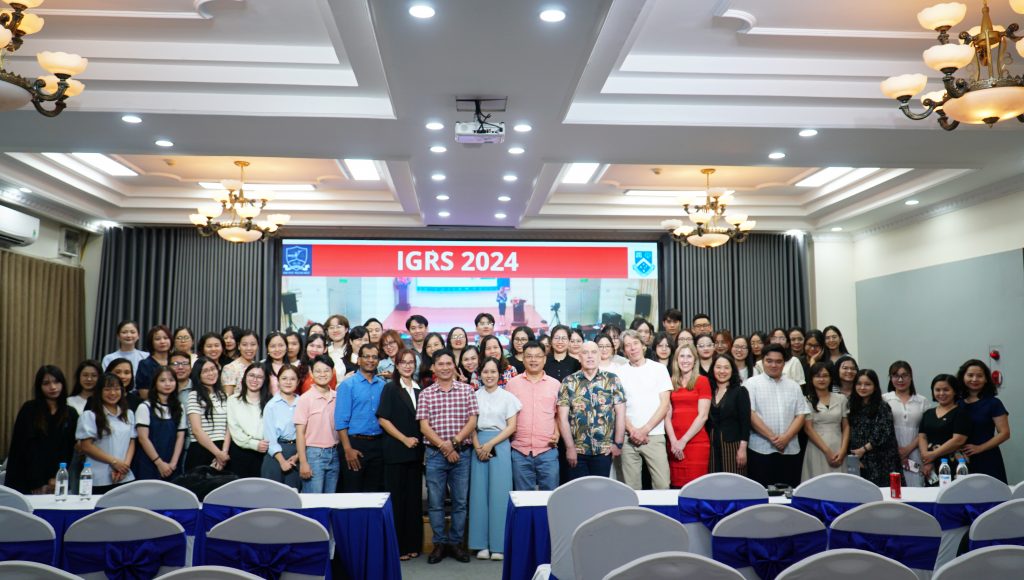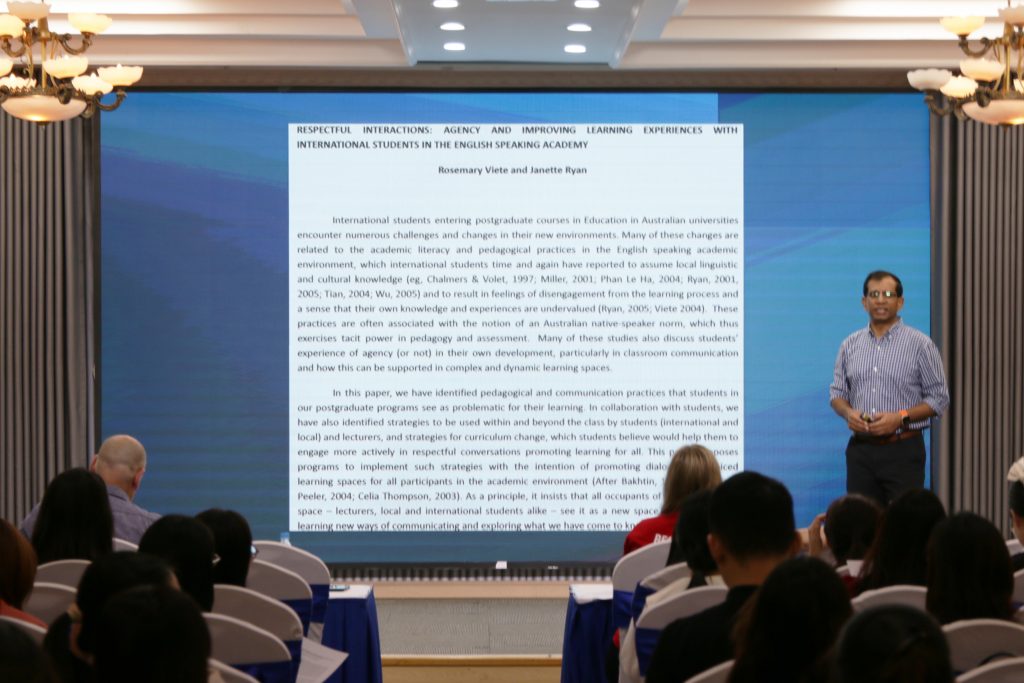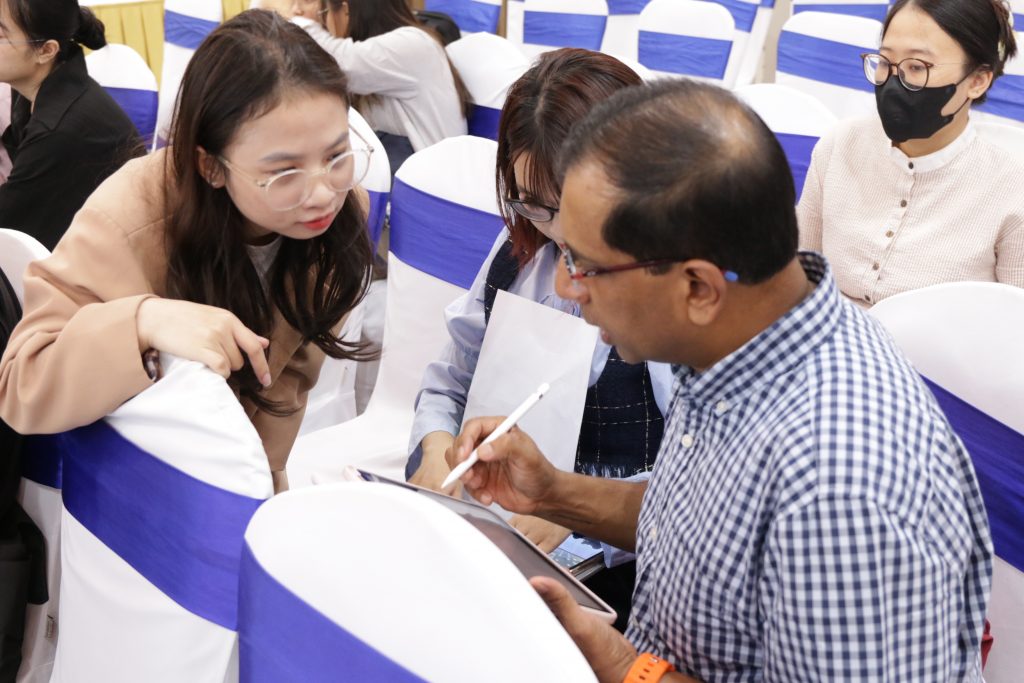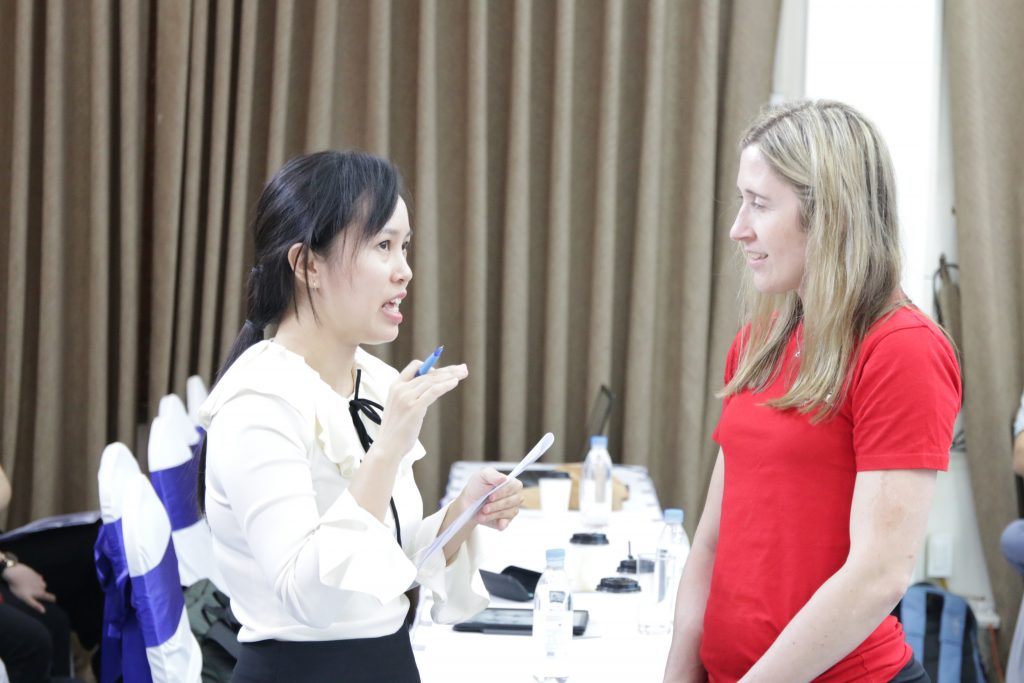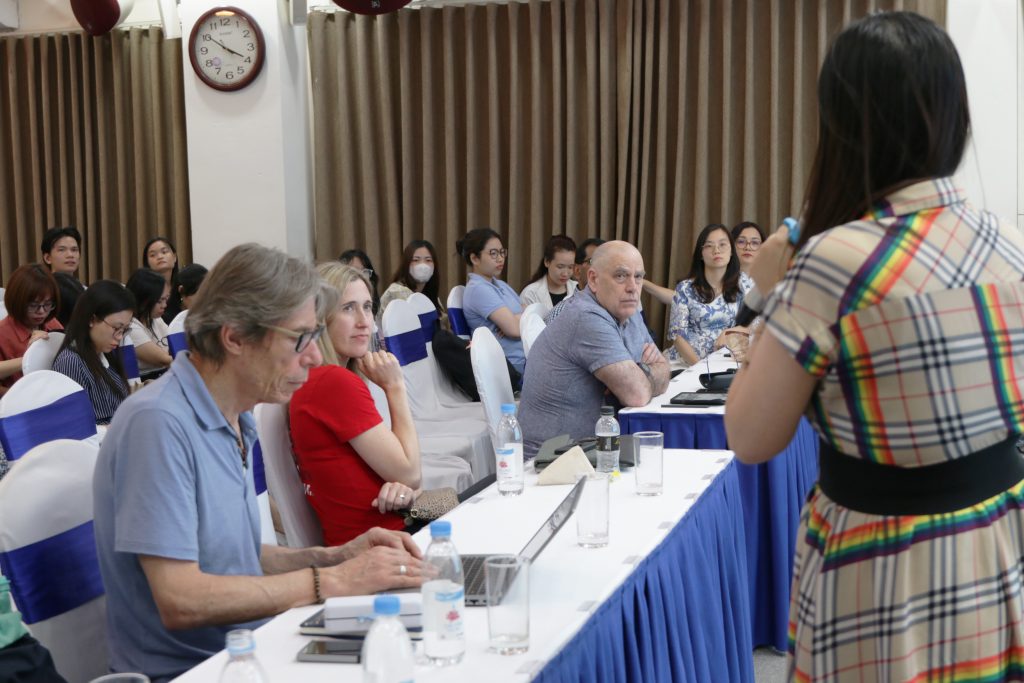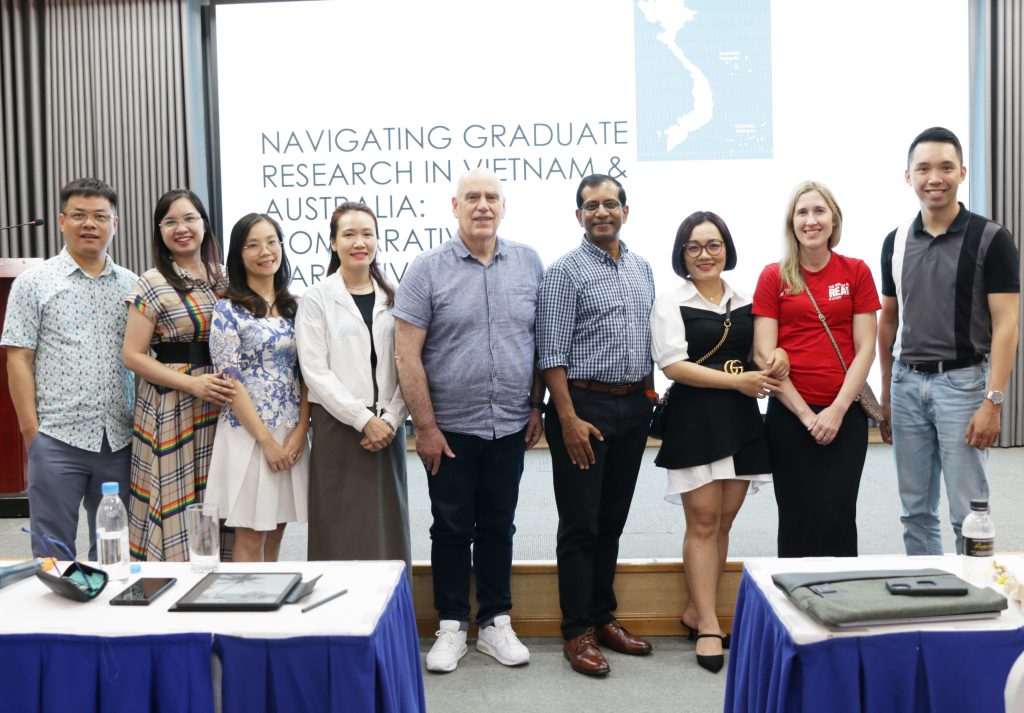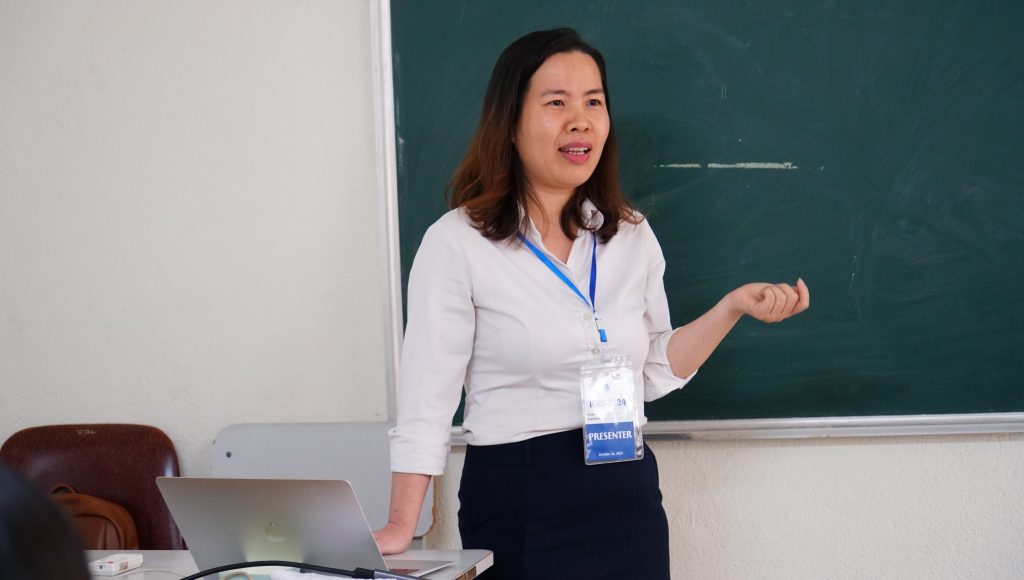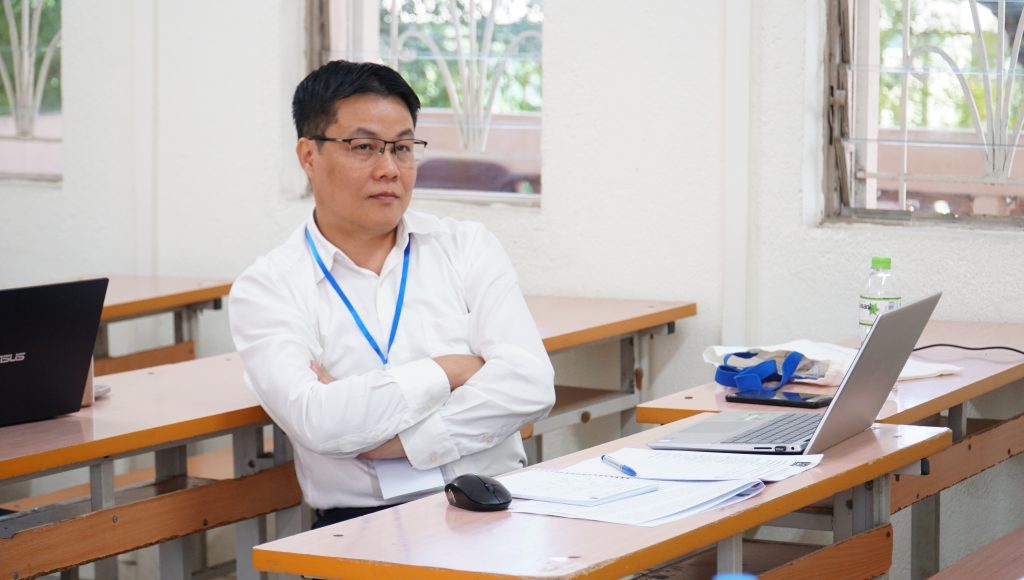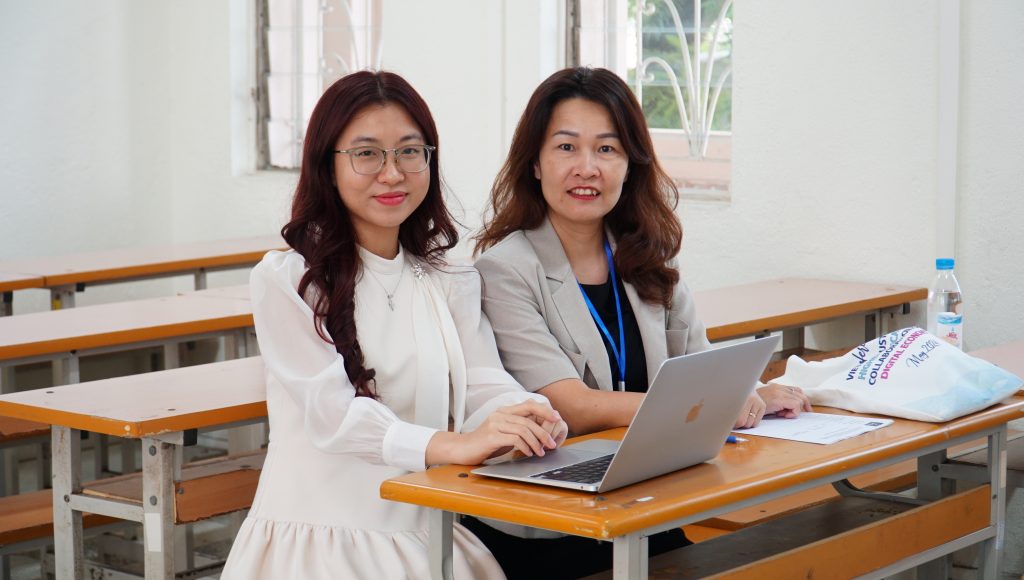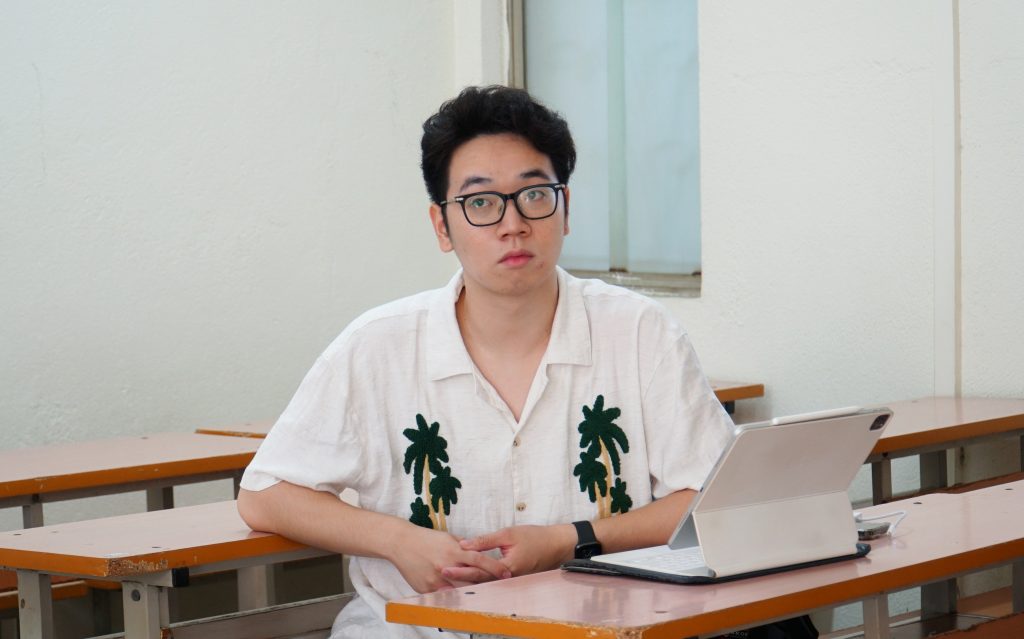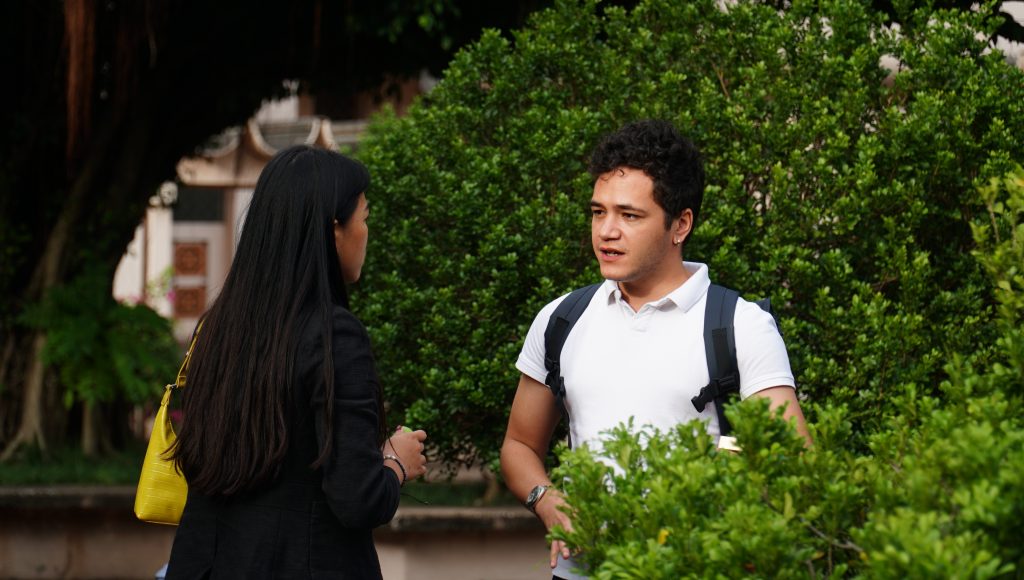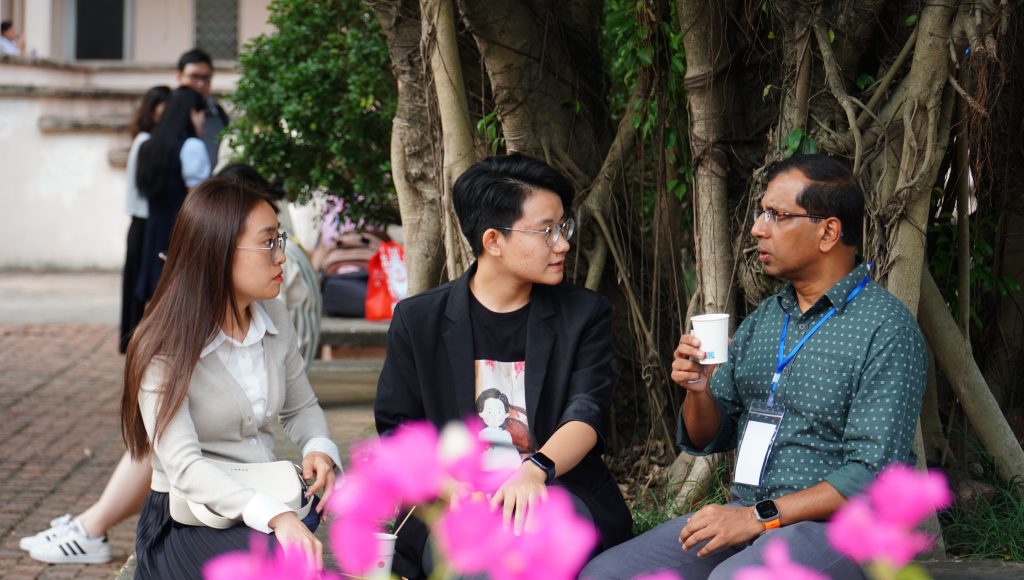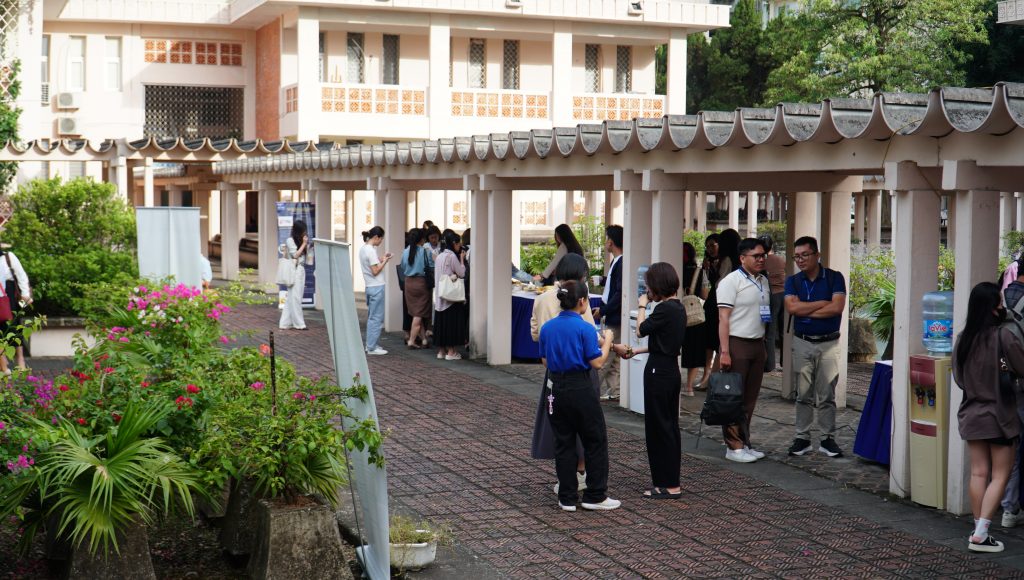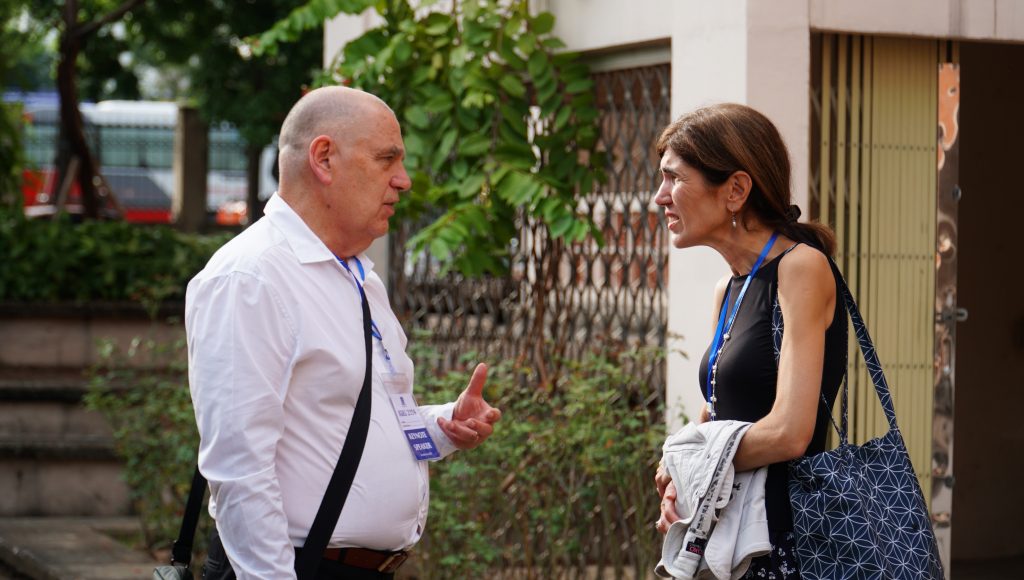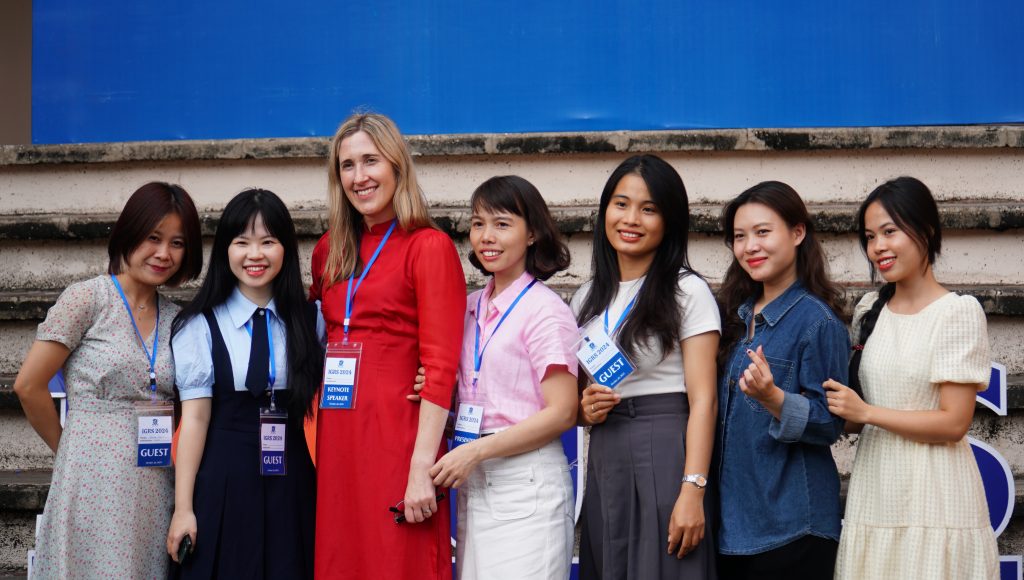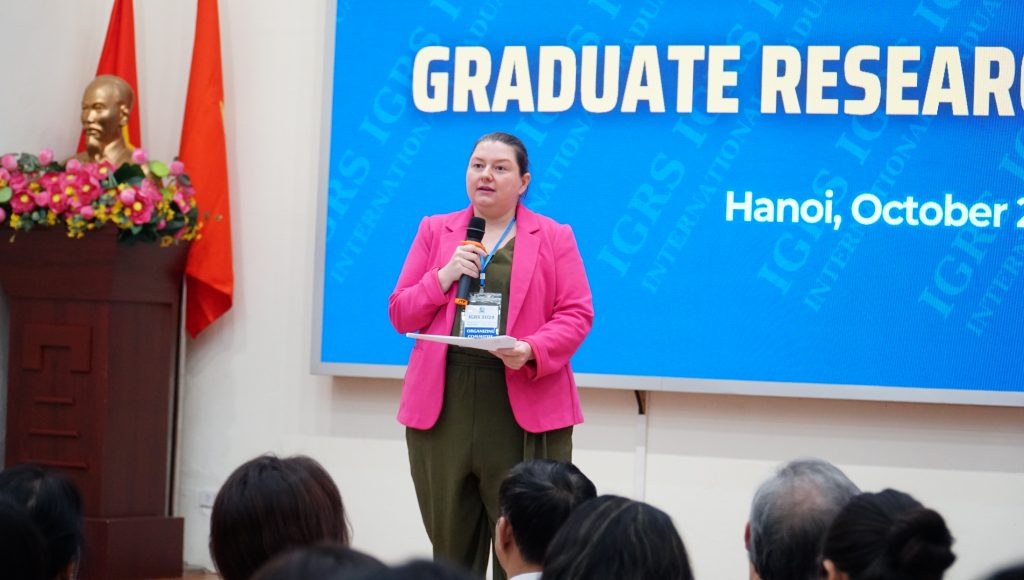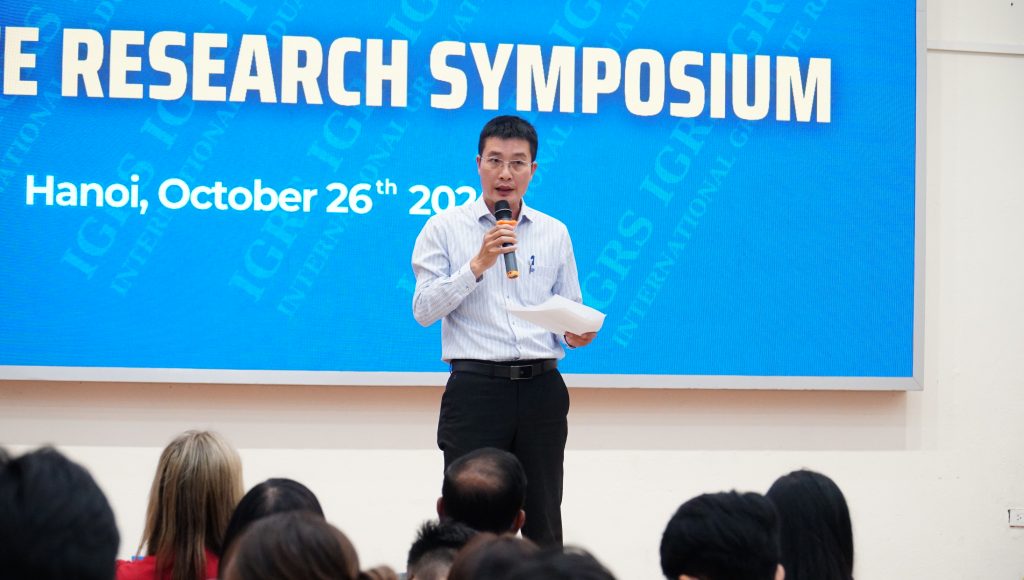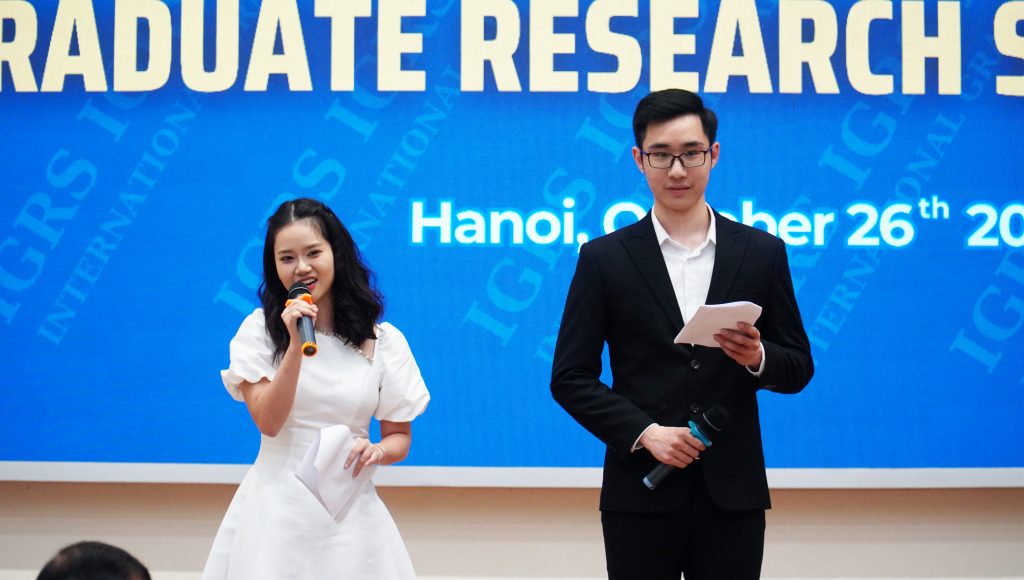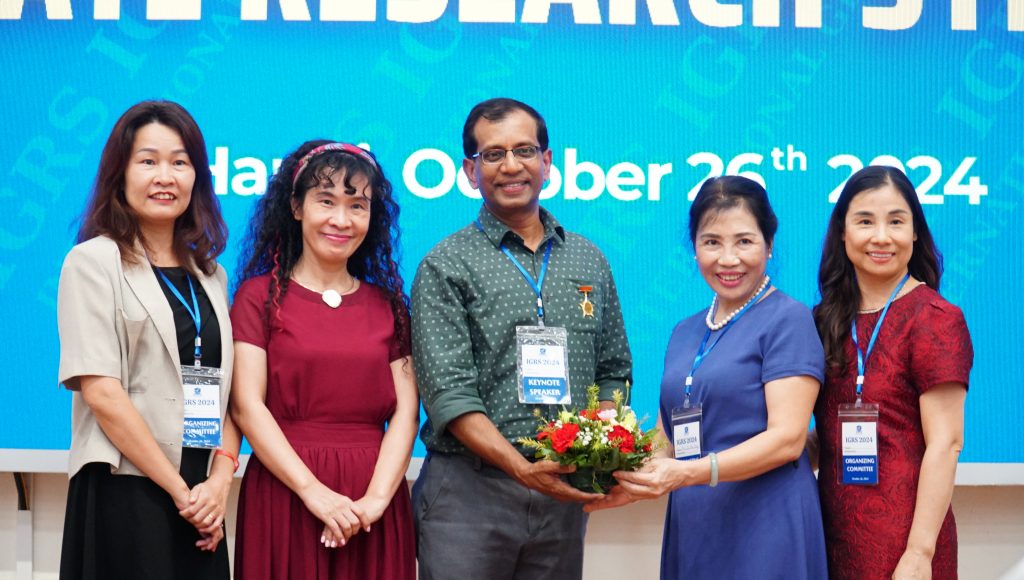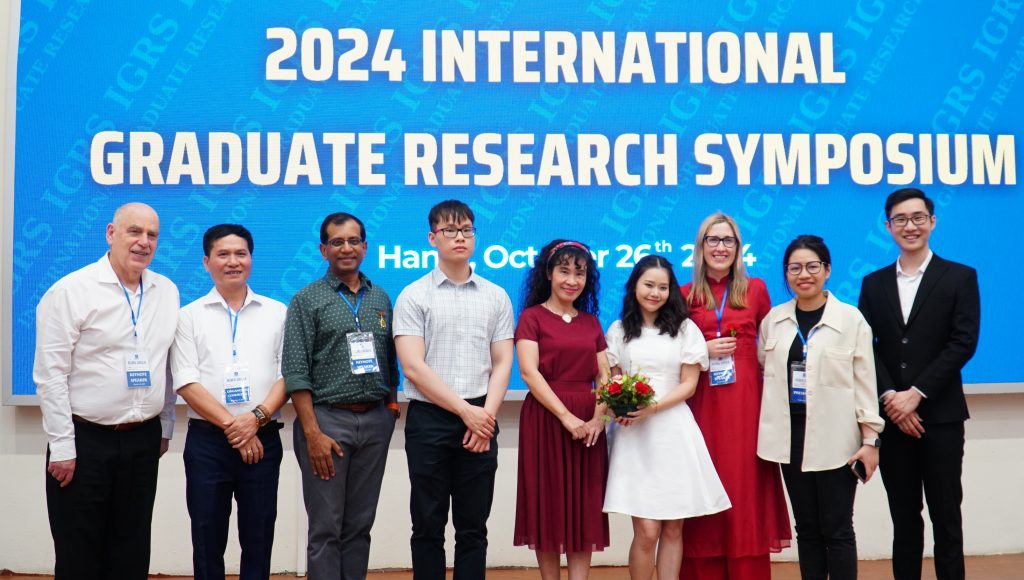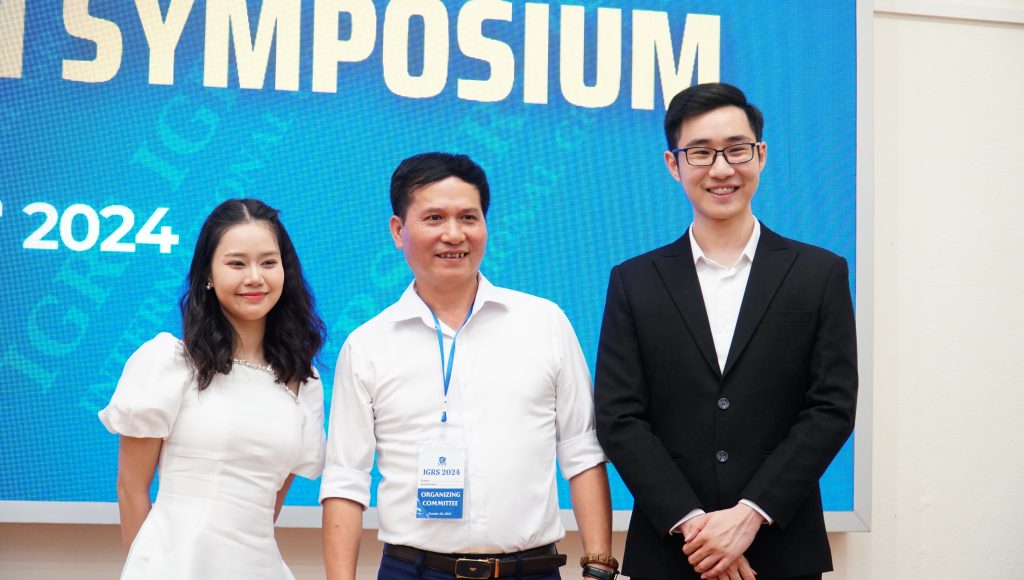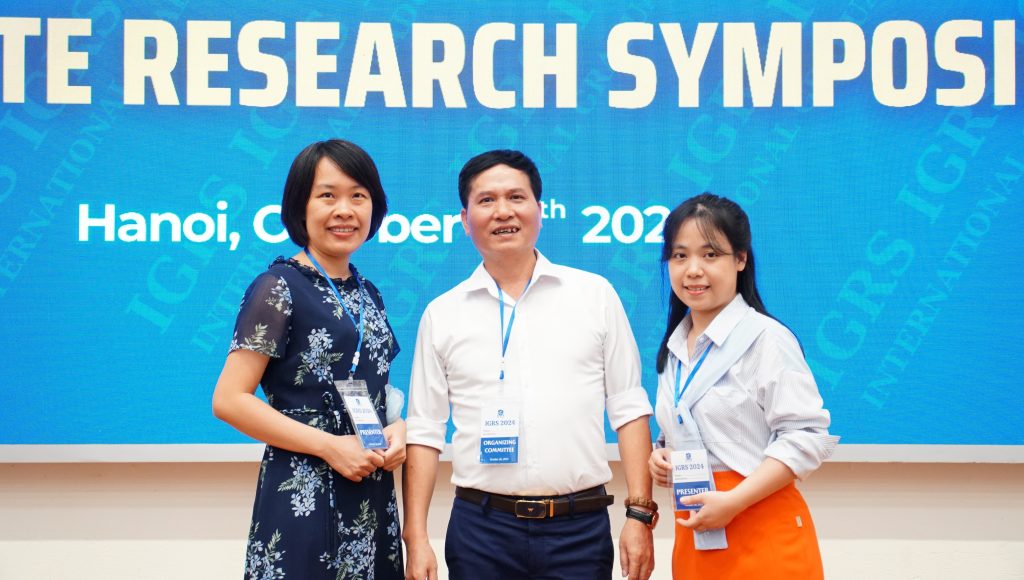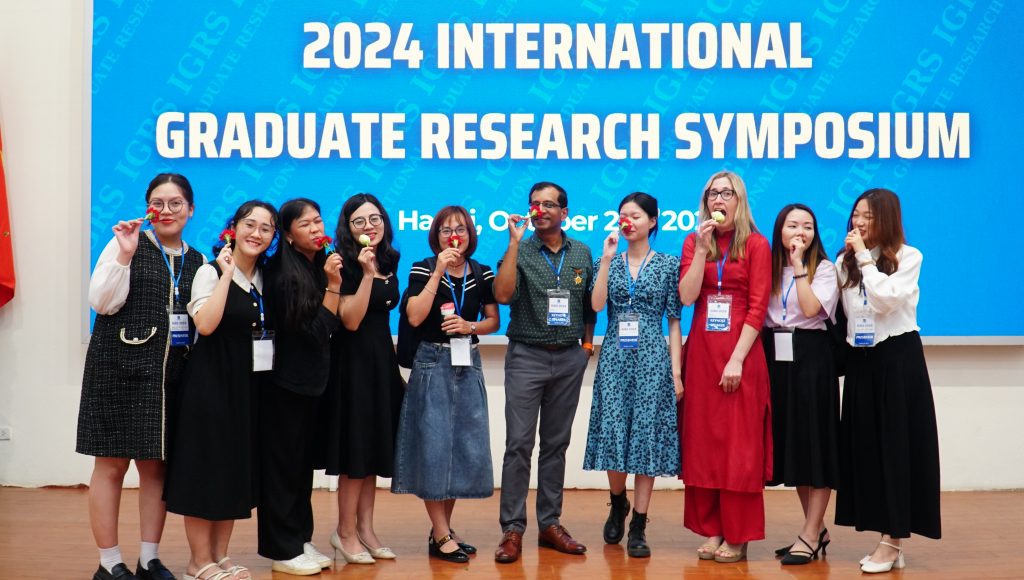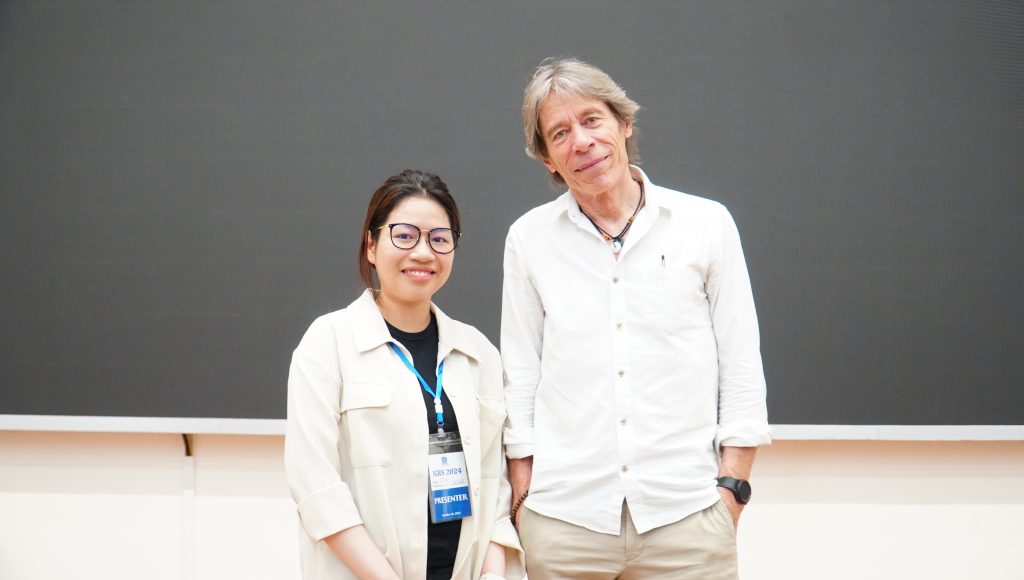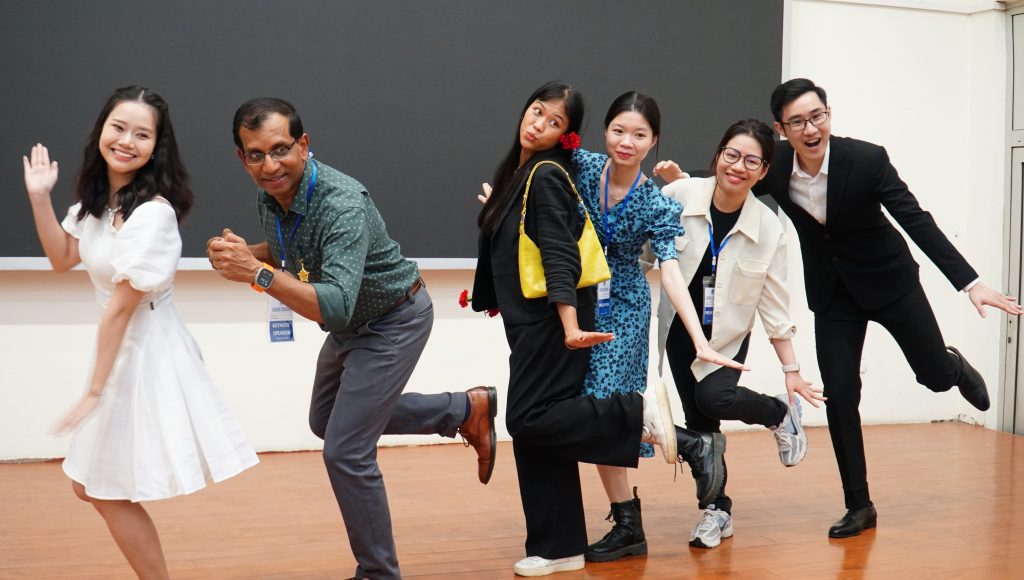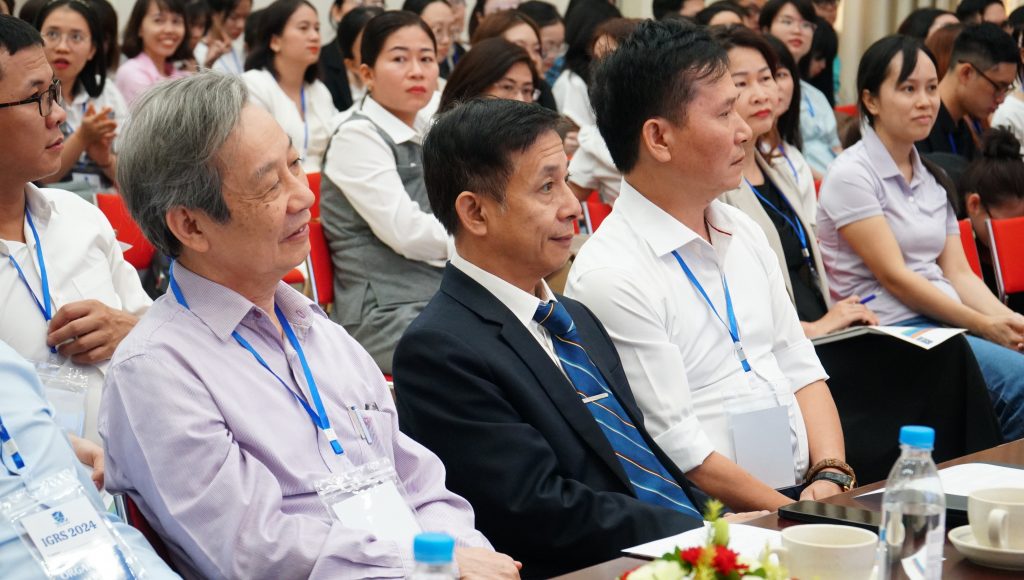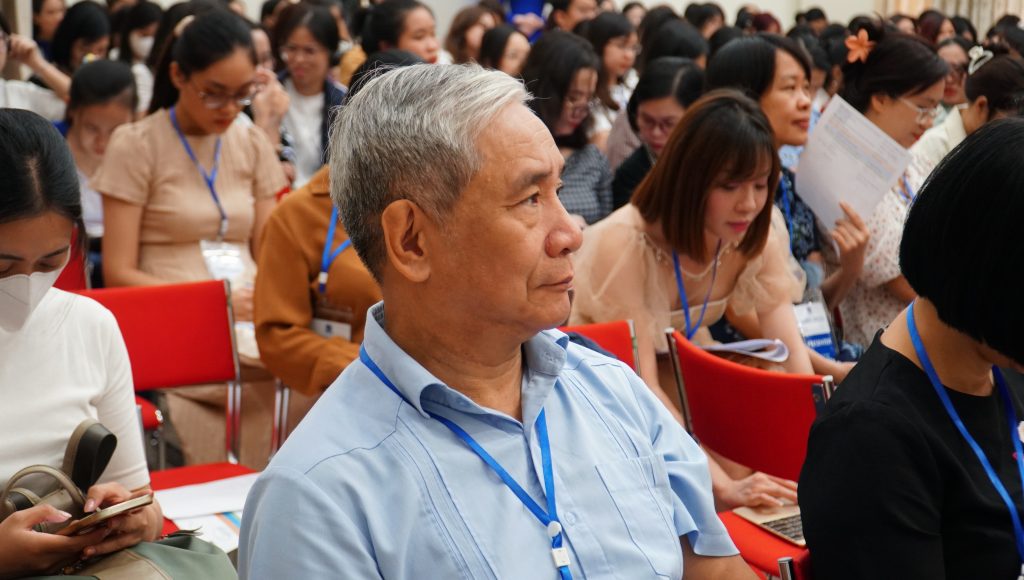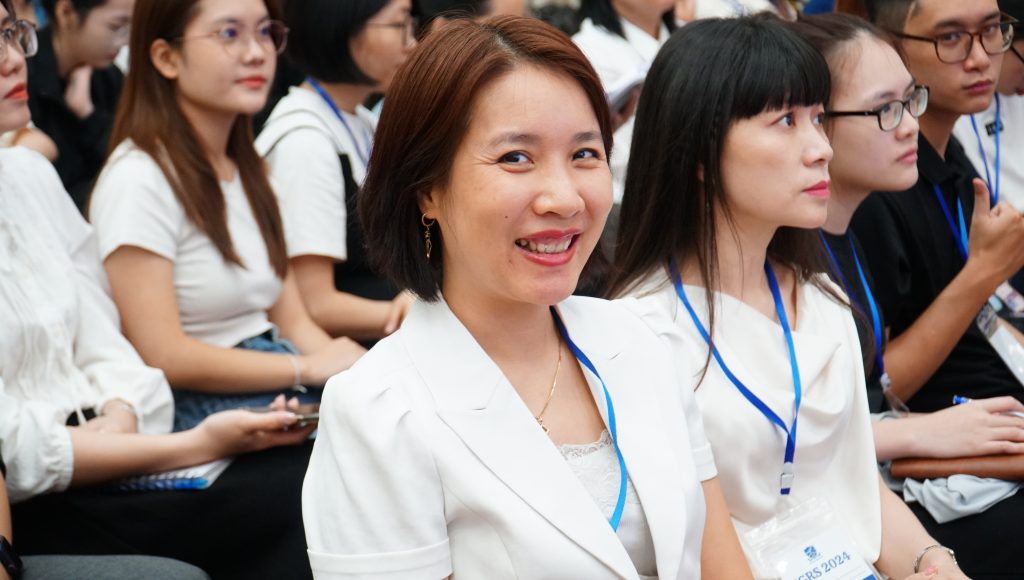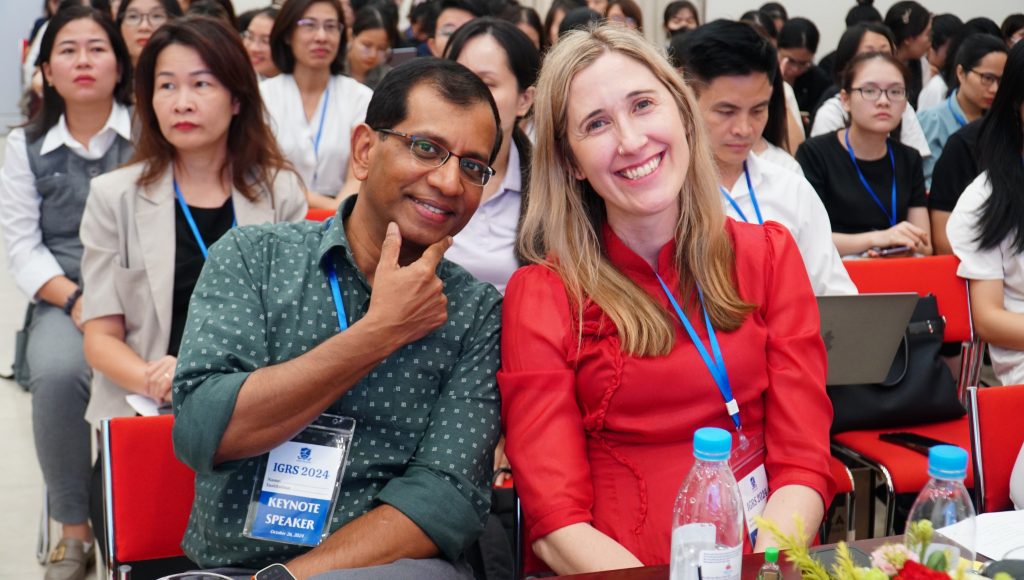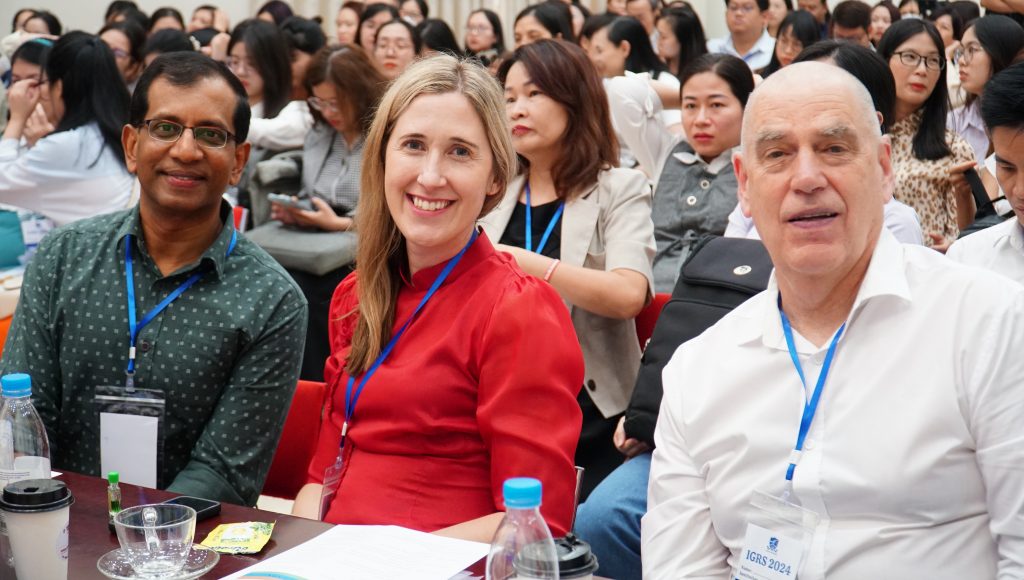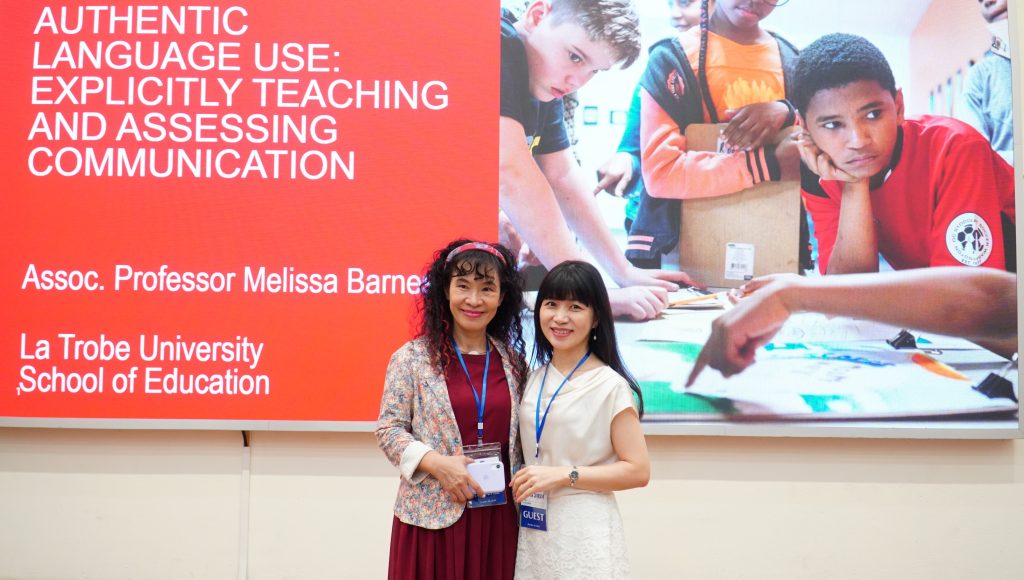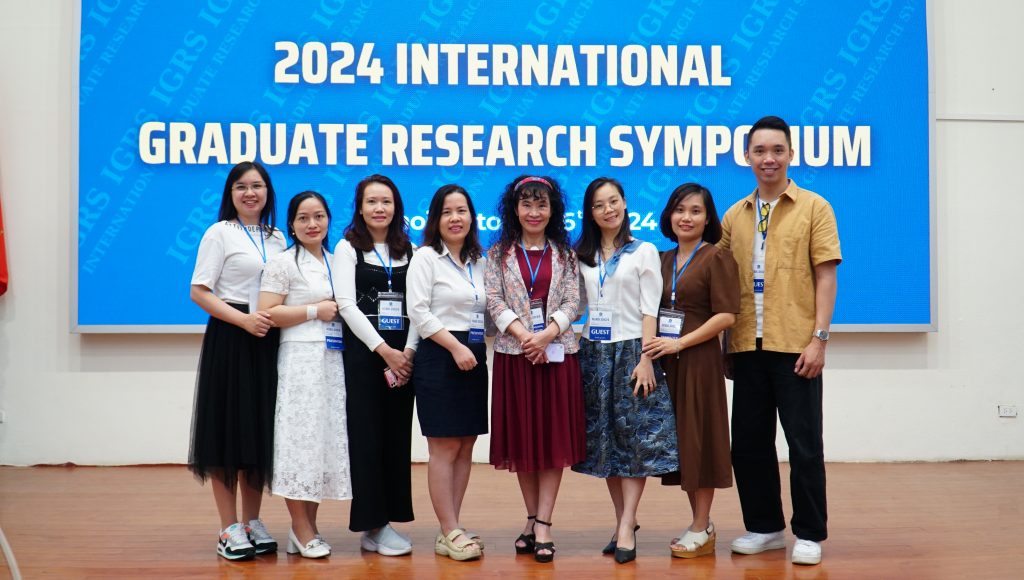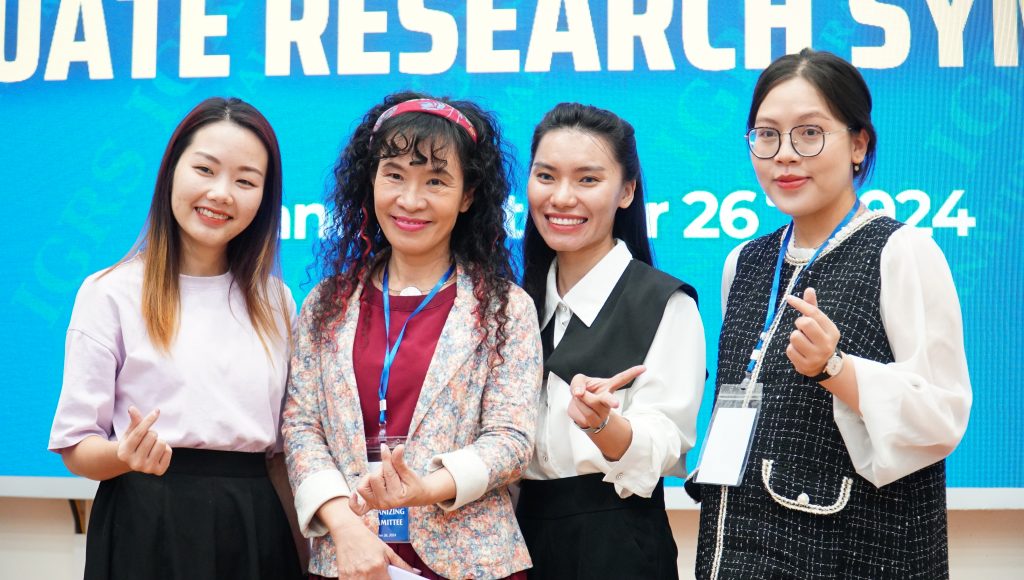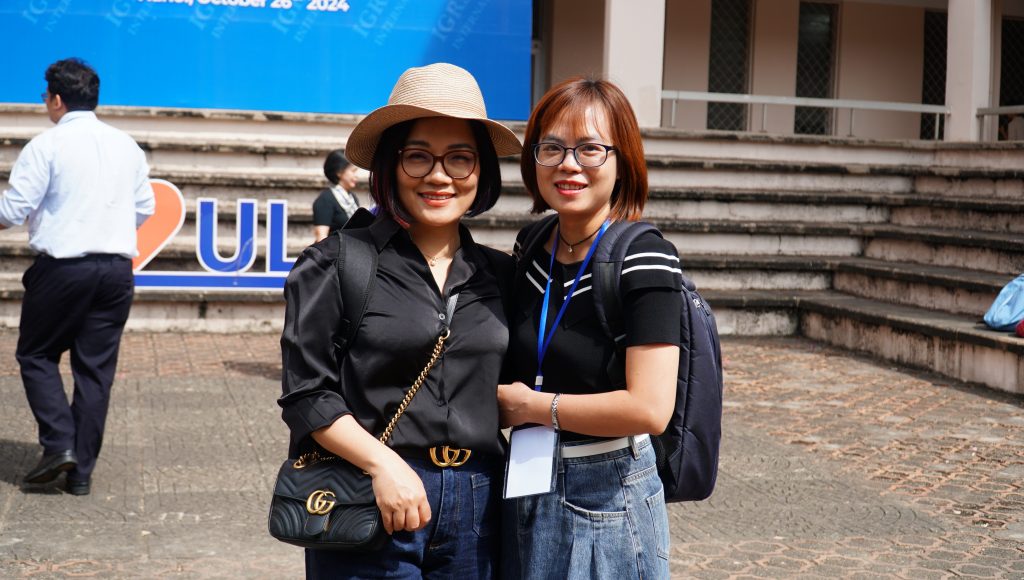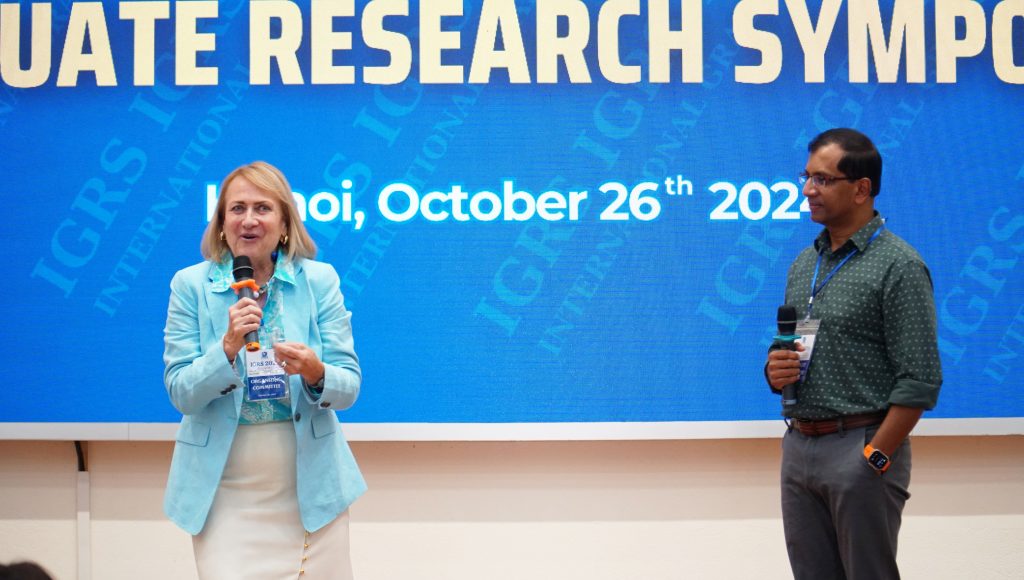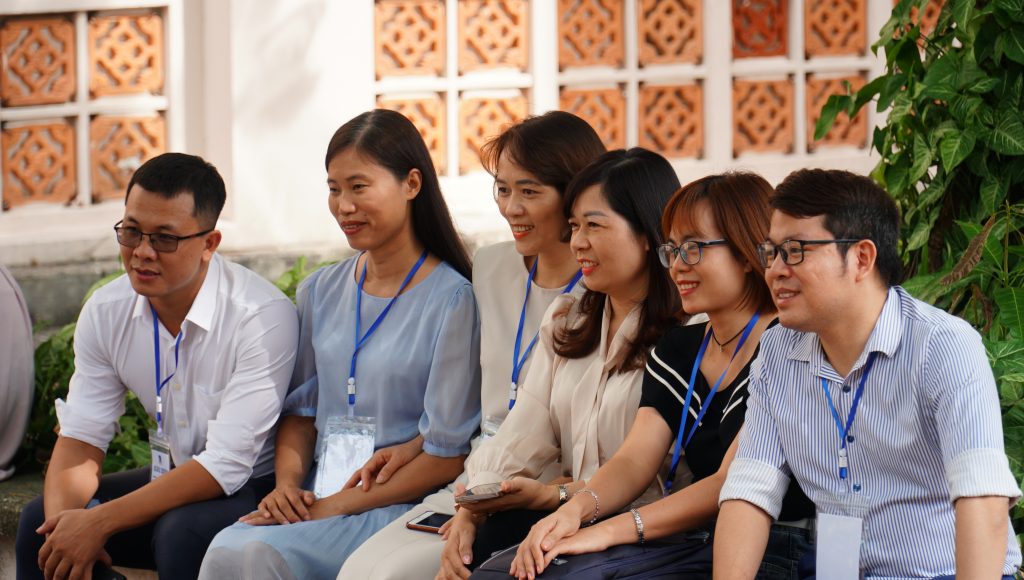Successfully Organizing of the 2024 International Graduate Research Symposium (IGRS 2024) on October 26, 2024
On October 26, 2024, the International Graduate Research Symposium (IGRS 2024) took place at the University of Languages and International Studies – Vietnam National University, Hanoi (ULIS-VNU).
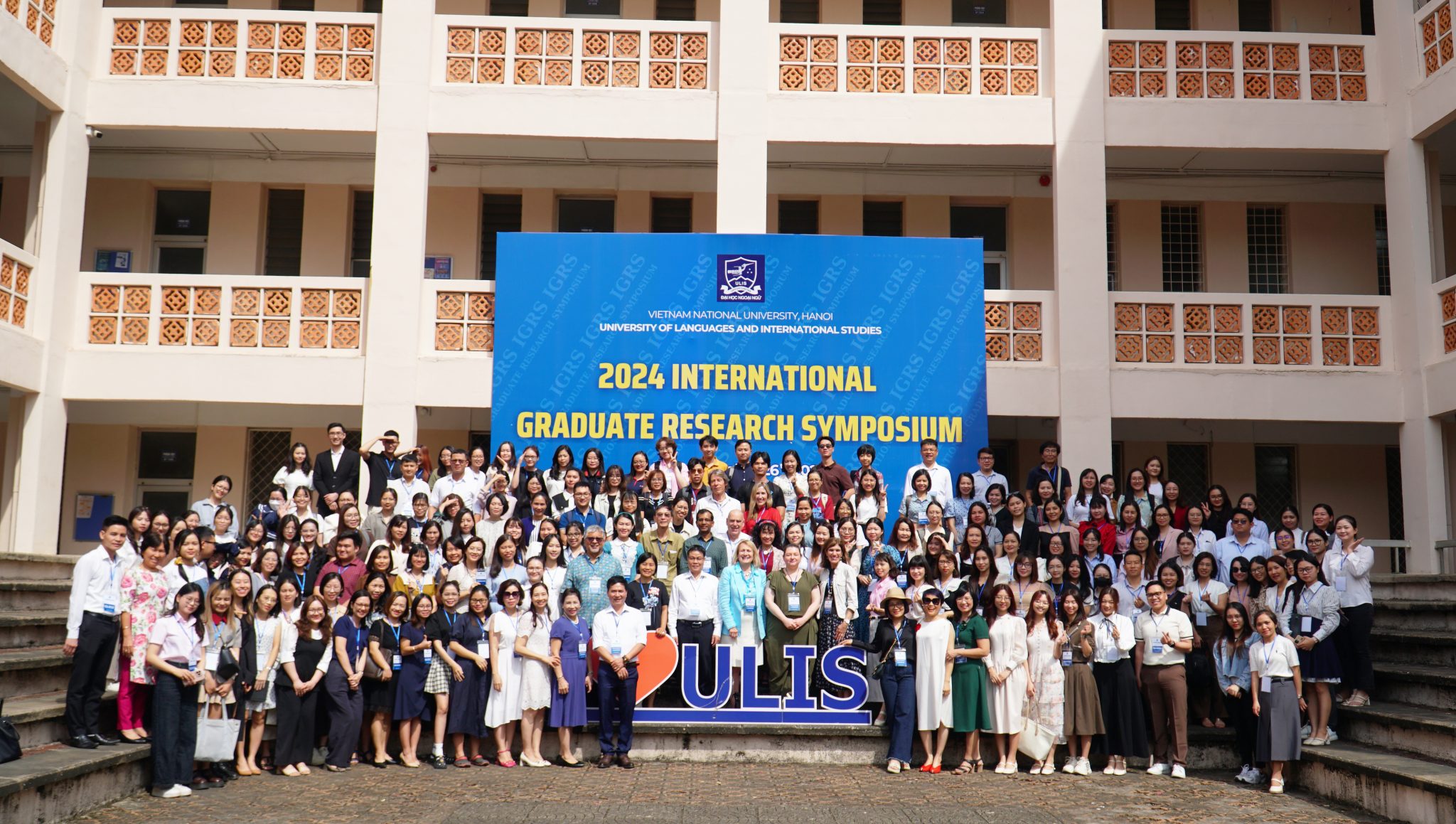
The International Graduate Research Symposium (IGRS) is an annual event organized by ULIS to promote research activities at the graduate level, providing a platform for networking and research dissemination for both master’s and doctoral students.
The symposium was attended by representatives from the National Foreign Language Project, VNU Hanoi, and partner universities. From ULIS, Vice Rector Lam Quang Dong, representatives of various departments, and leaders and staff from the Faculty of Graduate Studies were present. Additionally, the event saw participation from a large number of graduate students, PhD candidates, and scholars from both domestic and international universities.
To accommodate a wider audience of participants, including students, lecturers, teachers, and researchers from both inside and outside the country, this year’s symposium was held in a hybrid format, combining on-site sessions at the university and online sessions via the Zoom platform.
In his opening remarks, Vice Rector Lam Quang Dong emphasized that the IGRS symposium serves as a comprehensive forum for showcasing and sharing the results of extensive research efforts. It provides a platform for discussing new studies related to linguistics, education, and other social issues by master’s and doctoral students. ULIS is honored to host the 2024 IGRS event with the participation of a wide array of esteemed guests, speakers, students, and researchers from around the world. Looking forward to the success of this year’s event, and in anticipation of the 9th IGRS in 2025, which will coincide with the 70th anniversary of ULIS, Vice Rector Lam Quang Dong expressed his hopes that the 2024 IGRS would yield practical outcomes, contributing valuable teaching and learning methodologies to support students and researchers in acquiring comprehensive knowledge for their future careers. He also expressed his gratitude for the meticulous preparation and dedication of the speakers, the commitment of the Organizing Committee, and the support of VNU Hanoi, all of which were instrumental in ensuring a successful 2024 IGRS that would resonate both regionally and internationally.
Building on the success of the previous seven editions, the 8th IGRS focused on educational themes, linguistics, and issues related to communication skills development and classroom engagement in language learning.
The plenary session featured presentations from four keynote speakers. The opening presentation was delivered by Dr. Raqib Chowdhury from the Faculty of Education, Monash University, Australia, on the topic “Raising Multilingual Children and Family Language Policy: Promoting Hybrid Language Acquisition at Home.” The presentation highlighted the importance of a multilingual upbringing where the family plays a pivotal role in shaping and nurturing language skills. It emphasized the natural and flexible language acquisition process at home, which not only exposes children to multiple languages but also enhances diverse thinking and cultural understanding. This is particularly relevant in today’s globalized world, where linguistic and cultural exchanges are increasingly prevalent.
Next was Dr. Edwin Creely from Monash University, Melbourne, Australia, with his presentation titled “Innovative Language Learning: Creativity, Pedagogy, and Technology in the 21st Century.” This talk focused on utilizing creative approaches and cutting-edge technology to enhance language learning. In the 21st century, technology has become a powerful tool in education, supporting teachers in developing innovative pedagogical methods. Dr. Creely provided examples and methods on how technology can enrich learning experiences and foster creativity in language teaching, showcasing the benefits of integrating these approaches to create a smart and dynamic language classroom, aligning with global demands for innovation.
The topic of “Integrating Teaching, Learning, and Assessment” was presented by Professor Antony John Kunnan from Carnegie Mellon University, USA. He noted that integrating teaching, learning, and assessment is a key component of education, particularly in language training. When instructional methods and learning processes are closely linked with assessment practices, students receive continuous and high-quality feedback. This enhances learning efficiency and motivates learners, helping them develop better language skills. Professor Kunnan also introduced specific methods for effectively implementing this integrated approach.
Associate Professor Melissa Barnes from La Trobe University, Australia, presented on “Using Authentic Language: Teaching and Assessing Communication Clearly.” Her presentation addressed issues related to the use of language in communication and everyday dialogues. “Communicating in a second language often leads to hesitation, such as uncertainty about how to respond or argue effectively,” she noted. Associate Professor Barnes introduced teaching methods aimed at improving direct communication skills, which are part of the curriculum used at La Trobe University. Using authentic language in teaching allows learners to engage with language naturally and practically, closer to real-life communication scenarios. This topic is especially beneficial for teachers in developing students’ communication skills in a clear, systematic, and goal-oriented manner. She also presented a specific teaching framework for this program.
The closing presentation of the plenary session was delivered by Associate Professor Jonathan Newton from Victoria University of Wellington, New Zealand, titled “The Emotional Lives of Language Classrooms.” He pointed out that the emotional aspect of the classroom is a critical yet often overlooked factor in language teaching. Emotions have a significant impact on student motivation and learning capacity. He provided concrete examples from a class he had taught in China, outlining specific methods to maintain positive emotions among both teachers and students, thereby enhancing the effectiveness of English language instruction. His presentation illustrated how teachers can create a safe and supportive learning environment, where students feel comfortable and, as a result, are more effective in acquiring language skills.

